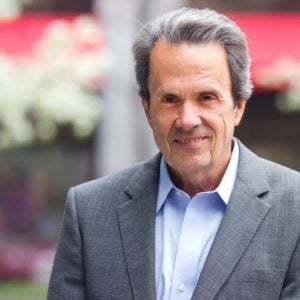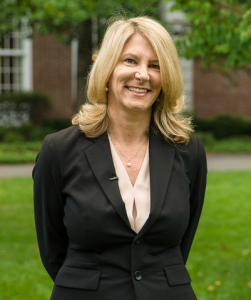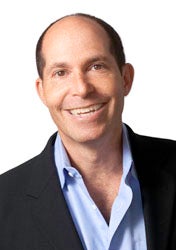 “In the current business culture, companies are more frequently facing crises caused by their ethics rather than by their products. Papa John’s is a case of a self-inflicted wound that is literally killing the company’s reputation.”
“In the current business culture, companies are more frequently facing crises caused by their ethics rather than by their products. Papa John’s is a case of a self-inflicted wound that is literally killing the company’s reputation.”
Fred Cook is the director of the USC Center for Public Relations (CPR) and a Professor of Professional Practice in the Annenberg School. As the director of CPR, he connects businesses, agencies, academics and students to advance the study and practice of public relations through research, education and innovation.
Cook is also the Chairman of Golin, one of the world’s largest public relations firms, with 50 offices around the globe. For the last 30 years, he has been providing marketing advice and crisis counsel to blue-chip companies like Nintendo, McDonald’s and Toyota. He has also worked personally with Jeff Bezos, Herb Kelleher and Steve Jobs.
Contact: (312) 622-8888 or fcook@usc.edu
“Bro” culture versus business ethics
 “The move by Papa John’s to quickly distance itself from the company’s founder and namesake is good business, pure and simple.
“The move by Papa John’s to quickly distance itself from the company’s founder and namesake is good business, pure and simple.
“With the rise of the #MeToo movement, heightened awareness of acute racial tensions, and at the same time an increasingly diverse and demanding consumer base with ever more access to information about stories like this, doing things like using the n-word, or questioning NFL players who kneel in protest during the anthem (especially when you provide a go-to food choice for those same NFL games) are devastating for a company’s image.
“Add to that more recent accusations of creating a ‘bro’ culture with regard to the treatment of women, and the board rightly realized they had no choice but to take swift and drastic action to correct course.”
Susan Harmeling, associate professor of entrepreneurship and expert on business ethics at the USC Marshall School of Business, focuses on the interserction of entrepreneurship and ethics. An expert on the case method of instruction, she founded the International Case Method Institute (ICMI) LLC and serves as a Facilitator for Harvard Business Publishing.
Harmeling received her MBA from Harvard Business School and a PhD in Entrepreneurship and Business Ethics from the Darden School of Management at University of Virginia.
Contact: (213) 740-9081 or sharmeli@marshall.usc.edu
When founders go bad, the Board has to act
 “When founders ‘go bad,’ the board has an obligation to act and its actions are often protected by the law. Plus, the board has broad latitude to act in the best interest of the company and, provided the board acted in good faith and not in its own self-interest, that action should be protected.
“When founders ‘go bad,’ the board has an obligation to act and its actions are often protected by the law. Plus, the board has broad latitude to act in the best interest of the company and, provided the board acted in good faith and not in its own self-interest, that action should be protected.
“A more interesting issue involves the Board’s adoption of a ‘poison pill.’ (Given Papa John’s pizza business, they would probably prefer to use the term ‘Stockholder Rights Plan.’) A poison pill is a plan that is typically used to fight off a hostile acquisition from an outside investor; it is rarely used to block a founder from acquiring a larger ‘slice’ of the company. However, since Schnatter owns 29 percent of Papa John’s stock, there is a risk of him acquiring enough of the company to replace the board and reinstall himself as Chairman. A poison pill would, at least in the short-term, prevent this. Papa John’s has other stockholders and Schnatter (and the board) have fiduciary obligations to act in the interest of the company. It is almost too easy to point out that if Schnatter ordered a pizza, and he only was paying for a third of it, Delaware Corporate law says that he can’t order toppings that ruin it for the other people sharing the pizza.”
Michael Chasalow directs the USC Small Business Clinic at the USC Gould School of Law, where students gain hands-on experience handling transactional legal problems and providing basic corporate legal assistance to small businesses, entrepreneurs and nonprofit organizations. He also teaches Counseling the Start-up Company, Partnerships & Limited Liability Companies and Business Organizations classes. Chasalow’s scholarly interests involve the development and structure of business ventures as well as corporate governance issues and issues relating to the governance of partnerships and LLCs.
Chasalow attended UC Berkeley, where he received a BA in both English and Economics. He received his JD from Berkeley’s Boalt Hall School of Law and his MBA at the UCLA Anderson School of Management.
Contact: (213) 740-3722 or mchasalow@law.usc.edu



